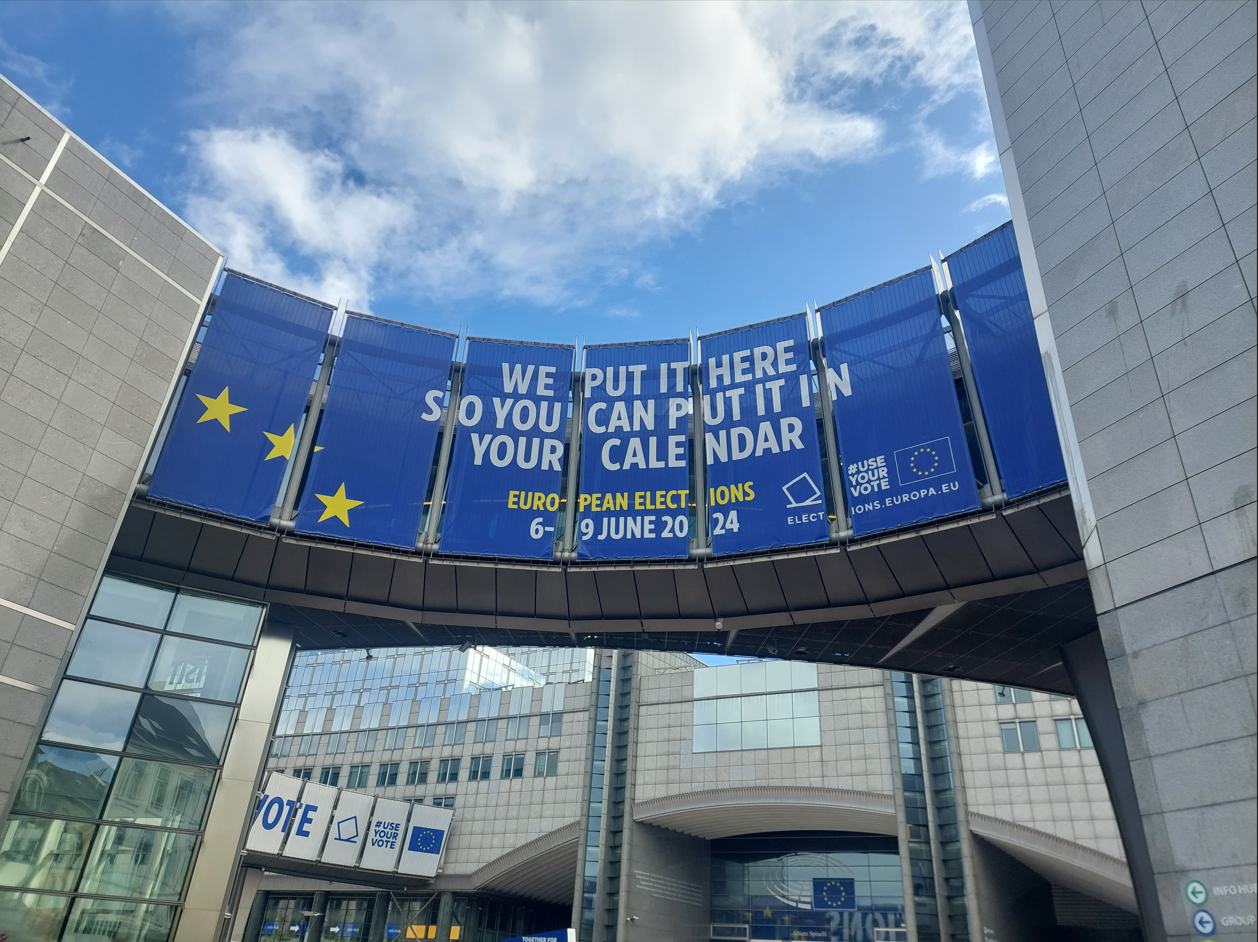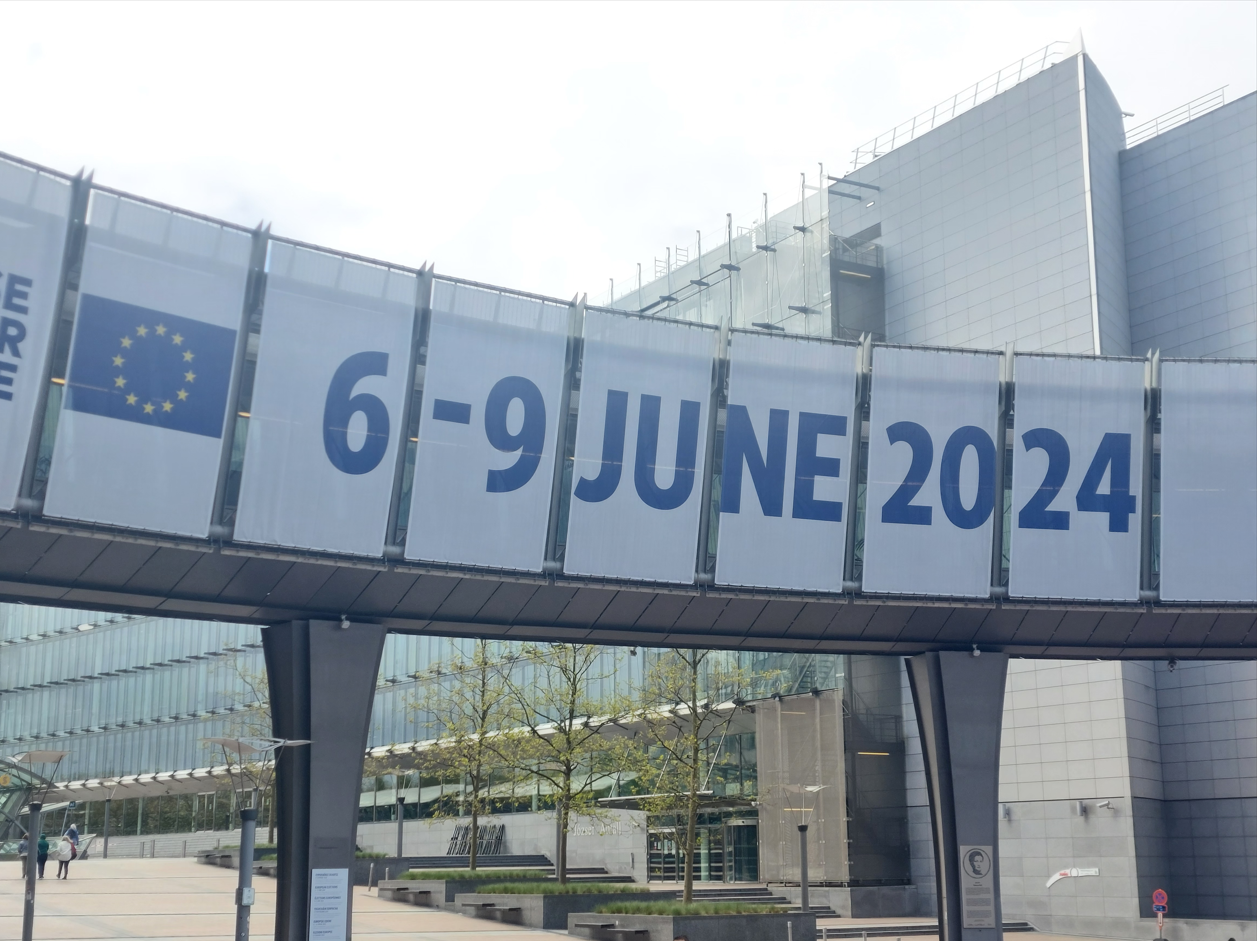European Parliament Elections

With just over a month to go until the European Parliament Elections, ICOS EU Affairs manager Damien O’Reilly takes us through the important role the EU institutions including the European Parliament play in shaping farming legislation.
It is almost 30 years since I first visited Brussels. I was a young reporter working in local radio invited to visit the “EU Institutions” as part of an Irish media delegation. To this day the EU offices in Dublin regularly organize media group visits to the heart of the EU where journalists can meet and interview politicians and policy makers. The cynic in me suggests that such a junket is the only way of attracting interest from the media to anything that goes on in the Belgian capital. It derives from the general narrative that what goes on in the European Commission and the Parliament does not have any real impact. The irony is that what goes on in the EU has a demonstrable impact on how we follow rules and live our lives.
It is joked that a good cure for insomnia is to start talking about how the EU works. But when I arrived here 18 months ago and began reading myself into the whole EU process, I became convinced that from an agricultural perspective, it is imperative that farmers and food producers inform themselves of the legislative process since it impacts on their livelihoods more than it does on any other profession. And they can begin afresh over the coming weeks as the media spotlight will focus on the whole EU bubble ahead of the European Parliament elections. It is a good opportunity to listen to the discussions and debates, attend a husting or quiz the candidates looking for a vote.
Farmers are not alone in being inert when it comes to the European Union and all that goes with it. That is not good news for outgoing and perspective MEPs. For there is the view that the power lies with the Commission with MEPs only turning up to rubber stamp legislation and so, “what is the point in voting?” That may have been the perception if not the reality in the early Parliaments. The Lisbon Treaty (remember that?) effectively gave more power to MEPs who now engage in the “ordinary legislative procedure.” Our elected representatives now have a big say in the legislation proposed by the Commission.
THE BEGINNING:
What we now call the EU27 began in 1957 when Germany, France, Italy, Netherlands, Belgium, and Luxembourg signed the Treaty of Rome to form the European Economic Community. A few years later, the Common Agricultural Policy came into force. And in 1973, the next batch of countries joined, Ireland, Denmark and the UK.
The biggest enlargement happened in 2004 when several of the former Eastern European communist countries were granted membership. In 2014, the EU grew to 28 members with the addition of Croatia and then fell back to what is now known as the EU27 as a result of Brexit. From a time when Ireland was the poorest member of the group of 9 half a century ago, we are now net contributors representing a little over 1% of the total EU population of 450 million. This includes around 9 million farms, a big drop over a relatively short period of time. Still, the Common Agricultural Policy (CAP) budget accounts for around one third of the EUs annual pot of money although inflation does not take account of the real devaluation of CAP payments to farmers over the past decade or so.
There are 7 principal decision-making bodies in the EU. But the triumvirate that are key to making decisions which impact directly on agriculture are the EU Commission, the Council of Ministers, and the European Parliament.
EU COMMISSION:
To make it simple, the EU Commission is equivalent to our Ministerial Departments. The EU Commission President is Ursula von der Leyen from Germany. She is a member of the European Peoples Party which is the largest political grouping in the European Parliament following the 2019 election. And so, as the leading party, the EPP nominee for Commission President usually gets the nod from the majority of heads of government by qualified voting majority to avoid one country vetoing a nominee. That name is then sent to the Parliament where a simple majority is required before the EU Commission President is ratified.
Each member state then nominates a commissioner who must go before the European Parliament as part of their job application to prove they are up to the job. Once all remaining 26 get the green light from the MEPs, the President sets about divvying out the portfolios. Each Directorate General (DG) is responsible for specific files of legislation. In the outgoing administration, DG Environment had oversight of many files which directly impact on farming including the Nature Restoration Law while DG Sante (Health and Food Safety) oversees Animal Welfare Legislation.
Their job is to introduce and/or update existing legislation. It usually begins with a public consultation. And once the Commission, via a DG, drafts a piece of legislation, it is at that point the real debate begins. From the moment the proposal is public to the day it is adopted or rejected by MEPs and Ministers; it could take several years. During that time, democracy is at work.
EU PARLIAMENT

Between June 6-9, Europeans will go to the polls to elect 720 MEPs (up 15 from the current mandate). Ireland will have 14 of that 720. Seats are divided up based on population share. Once elected, MEPs will choose which committees they would like to sit on. This is a key decision. From an Irish farmers perspective, you want the MEP of your choice to sit on the agriculture or environment committee where the EU Commission legislative files are first parsed. It is the committees that do the spade work in going through the initial Commission proposals line by line, debating, and amending as they go.
EU COUNCIL OF MINISTERS:
In parallel, the Council of Ministers (Agriculture or Environment) study the legislation in an effort to reach a consensus. At a later point in the process, the Commission becomes involved again in what is called “trilogue” meetings. And while all of this is going on, farm representative bodies, NGOs, lobbyists, national governments, and other stakeholders are in communication with MEPs and Ministers with their wish-lists and concerns to be added or deleted to the proposed legislative text. When MEPs, Ministers and the Commission legal eagles are satisfied that a piece of legislation is sound and fit for purpose and the best outcome for the majority, it goes to the EU Parliament in its entirety known as “plenary” for a final vote. Sometimes even at this late point, there are final tweaks and delays. All going well, the file will then have one final look over from the Ministers before agreement. Even at this point, there can be a change of heart as is the case with the Nature Restoration Law which was all but home and hosed in March until a number of member states reconsidered.
Brussels has gone quiet in recent weeks as MEPs and their staff burn shoe leather in the search of votes back home. Meanwhile the EU Commission will also undergo a shakeup and we anxiously await to see who Ireland will nominate and which commissioner will take charge of the agriculture and environment DGs. The European Parliament election takes place on June 6th in Ireland. In casting your vote for the candidate of your choice, you are having a big say in how you would like to see farming policy shaped from now until 2029 as MEPs do have a big say.
-Ends-